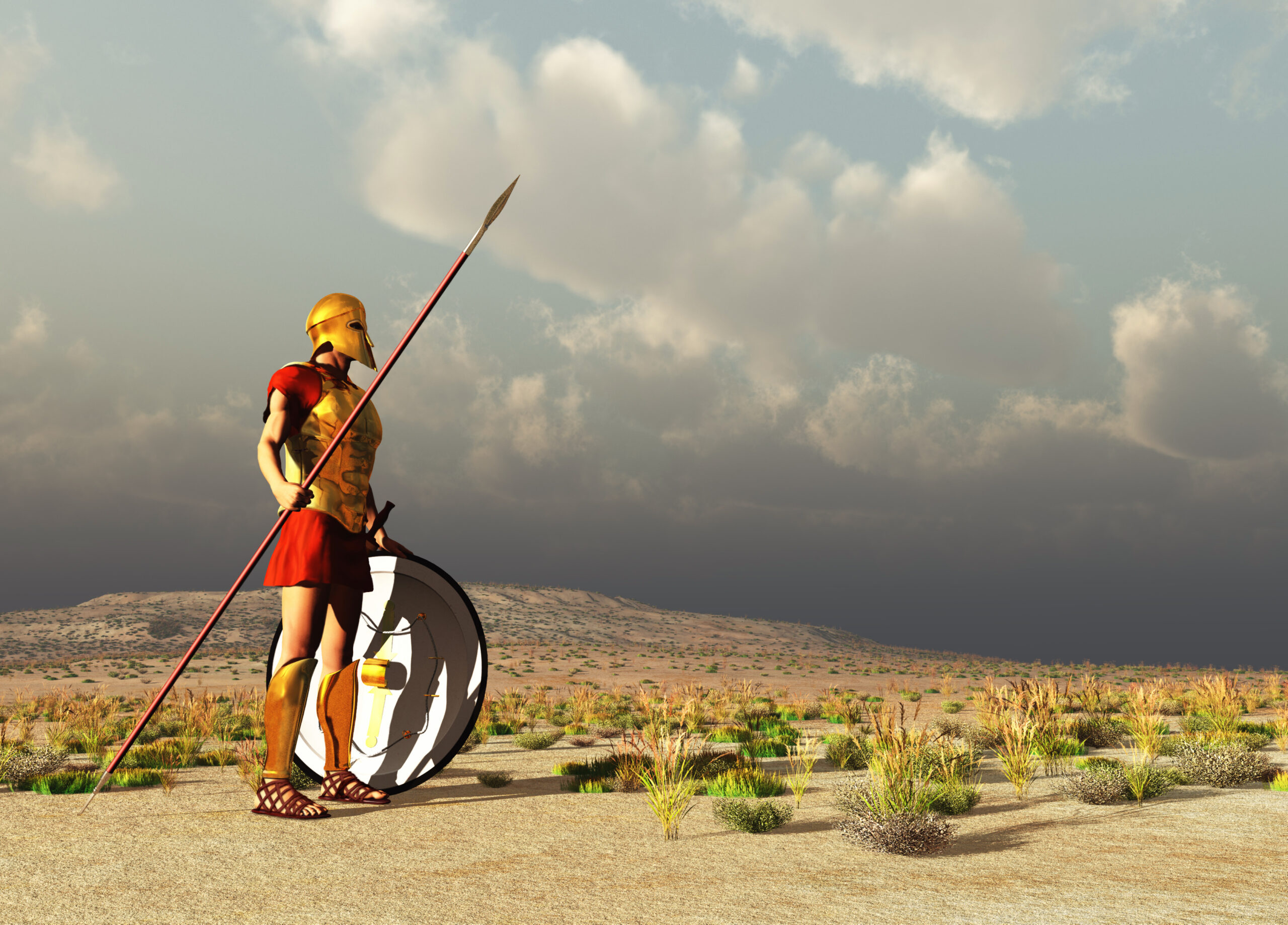In fact, Pericles was gradually turning the Athenian alliance into an empire, with subject members providing the money for Athens, which would defend them all and would be able to challenge Sparta. In 454 the treasury of the alliance was moved from Delos to Athens. During a truce in the first Peloponnesian War with the Spartans (460-445), the Athenians, operating in the Aegean, increased the number of their allies (about 170 cities at the peak), and in 449 made peace with Persia, liberating the Ionian cities and binding the Persians not to come within three days’ journey of the coast.
Athenian settlements were founded on the territories of some allied states, and Athenian coinage became standard throughout the alliance. Resentment against Athens was naturally widespread among the allies. But in 445 a thirty years’ treaty with Sparta provided that neither side would commit aggression against the other. Both had lost the goodwill of the other Greek poleis: Athens was now ruling an empire by force, and its protection against the Persians seemed less high minded; Sparta had suffered defeats, and its military reputation was dimmed.
As it turned out, the peace lasted for only fifteen years (445-431). It was a prosperous period during which Pericles continued to dominate the affairs of state, being democratically elected general every year. He had at his disposal the large surpluses in the imperial treasury, which mounted in those years of peace and which with Athens’s other revenues were much more than enough to pay the ten thousand rowers of the warships, the seven hundred officials, the five hundred councilors, the six thousand jurors, and many others. Pericles embarked upon a great program of public works, of which the two most famous buildings were the celebrated Parthenon and Propylaea (monumental gateway), both on the Acropolis. After one had mounted the steps that led up to the Propylaea and passed through it, one saw at the top of the hill a giant bronze statue of Athena sculpted by Phidias; behind it and to the right rose the entrance portico of the magnificent new temple and inside was another statue of Athena by Phidias, in gold and ivory.
There were plenty of jobs available because of the building program, and slaves as well as freemen participated and were paid. There were money and opportunity for nearly everyone: for the metics (resident aliens), who had to pay a special tax and were not allowed to own land or participate in politics but who engaged in commerce; for the 80,000 slaves, whose lot was somewhat easier than it was elsewhere; and most of all for the 168,000 Athenian citizens. Counting children, the total population of Attica was perhaps half a million.
Relatively speaking, Athens was a democracy-the word denzokratia having been coined around the first half of the fifth century B.C.-though we would not consider it one today. The Greeks believed men to be unequal, not only in economic and social status but also in moral worth, so they justified a narrow base for citizenship. They believed that because communities tend to divide into factions, a well- run state must find a means to control these factions. Athens was a direct democracy, not a representative one, which meant that all forty-five thousand male citizens eligible for the assembly were entitled to attend; yet perhaps not more than six thousand took the trouble to do so.
Given the problems of travel and the need for peasants to remain on their land, this group would be, on the whole, well-to-do and dominated by the aged because the young were away at war. In sum, in its Golden Age under Pericles Athens was a remarkable society, more complex than others among the Greek states. But we must not conclude that the Athenians had a fully articulated democratic theory.

